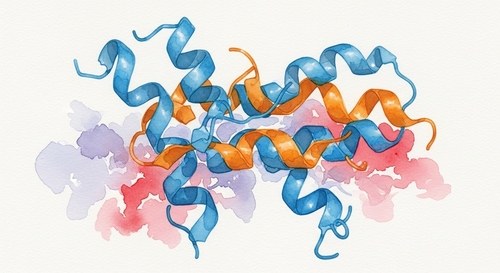Artificial Intelligence (AI) is transforming scientific research by accelerating data analysis, automating experiments, and enhancing knowledge discovery. AI platforms such as Semantic Scholar, Sparrho, and OpenResearcher streamline literature reviews, while tools like AlphaFold and Insilico Medicine drive breakthroughs in protein prediction and rapid drug design. Case studies include Stanford’s virtual AI scientists proposing novel nanobody vaccines, BioNTech’s AI lab assistant “Laila,” and the Flora Incognita app for biodiversity monitoring. Despite challenges of transparency, bias, and reproducibility, AI empowers researchers to generate hypotheses, optimize workflows, and open new scientific frontiers, making it a powerful catalyst for interdisciplinary innovation and discovery.
Artificial Intelligence (AI) has become a transformative force in scientific research, reshaping not only how experiments are conducted and data is analyzed, but also how knowledge is discovered and shared. By processing vast datasets, recognizing patterns, and generating predictions, AI is accelerating discoveries across disciplines—from biomedicine and chemistry to environmental science and astronomy.

Accelerating Data Analysis
Modern scientific research often generates massive datasets that are nearly impossible to analyze manually. AI models, including machine learning and deep learning, can process these volumes with unprecedented speed and accuracy.
- Astronomy: Neural networks classify galaxies and detect anomalies in telescope imagery that human observers might miss.
- Genomics: AI aids in decoding complex DNA structures, identifying gene expressions linked to diseases faster than traditional methods.
This computational power enables researchers to extract meaningful insights in days instead of years, driving faster innovation.
Supporting Hypothesis Generation and Experimental Design
AI doesn’t just analyze data—it also helps formulate hypotheses and design experiments. In drug discovery, for example, AI can suggest chemical compounds with potential therapeutic effects long before they reach the laboratory. This leads to more focused experiments, saving both time and resources.
A striking example is Insilico Medicine, which uses generative AI to design novel drug molecules. In one case, a promising drug candidate moved from AI-driven design to clinical trials in record time, demonstrating the efficiency gains of AI‑powered discovery.
Automating Laboratory Processes
AI also contributes to the automation of repetitive or labor‑intensive laboratory work. Robotic systems guided by AI can pipette samples, run standard assays, and monitor experiments with minimal human intervention. This not only improves consistency but also frees scientists to focus on creative and analytical tasks.
A compelling case is DeepMind’s collaboration with BioNTech (via InstaDeep), which developed an AI lab assistant nicknamed “Laila”. Laila can oversee lab instruments, suggest experiments, and analyze results in near real time, making the laboratory more efficient and adaptive.
Literature Mining and Knowledge Discovery
Scientific progress relies heavily on understanding and connecting existing research. AI-powered platforms streamline literature analysis and knowledge management:
- Semantic Scholar automatically generates concise summaries of academic papers and recommends relevant studies tailored to a researcher’s interests.
- Sparrho provides personalized research feeds across publications and patents, combining machine learning with curated insights to surface interdisciplinary discoveries.
- OpenResearcher leverages retrieval‑augmented generation (RAG) to answer research questions directly from the literature, helping scientists identify gaps and form new hypotheses efficiently.
These platforms reduce the time spent on manual literature reviews, allowing researchers to move from reading to reasoning more quickly.
Case Studies: AI in Action
Several real-world applications illustrate the tangible impact of AI in research:

- Virtual AI Scientists at Stanford
A Stanford study demonstrated “virtual labs” populated by AI agents capable of autonomously proposing vaccine strategies against COVID‑19. Remarkably, they suggested using small nanobodies rather than conventional antibodies, producing a stable and highly effective molecular structure that impressed human researchers. - AlphaFold and Protein Structure Prediction
DeepMind’s AlphaFold revolutionized structural biology by predicting the 3D structure of proteins with extraordinary accuracy. In 2022, AlphaFold made the structures of over 200 million proteins publicly available, accelerating drug discovery and fundamental biological research. Its significance was underscored when DeepMind’s team, including Demis Hassabis, received the Nobel Prize in Chemistry for this achievement. - AI‑Accelerated Drug Discovery
Insilico Medicine combined generative adversarial networks (GANs) and reinforcement learning to create drug candidates in mere weeks. One candidate progressed into clinical trials after only 46 days from initial design—an unprecedented pace in pharmaceutical R&D. - Citizen Science and Environmental Monitoring
AI is also empowering large-scale ecological research. The Flora Incognita app, developed by TU Ilmenau and the Max Planck Institute, uses deep learning to identify plants from smartphone images. With over five million downloads and hundreds of thousands of identifications per day, the platform contributes valuable biodiversity data for environmental studies.
Ethical and Methodological Challenges
Despite its benefits, AI introduces new challenges in research:
- Transparency and Explainability: Many AI models operate as “black boxes,” making it difficult to trace how conclusions were reached—an issue for scientific reproducibility.
- Bias and Data Quality: AI systems are only as reliable as the data they are trained on. Biased or unrepresentative datasets can produce misleading results.
- Skill Shifts: Modern researchers now need cross-disciplinary literacy, combining domain expertise with knowledge of computational tools and statistical reasoning.
Addressing these challenges requires rigorous validation, ethical oversight, and a culture of critical thinking to ensure that AI complements human insight rather than replacing it.
AI Tools and Platforms at a Glance
| Platform / Tool | Application | Research Benefit |
| Semantic Scholar | Automated summaries and study recommendations | Rapid identification of relevant research |
| Sparrho | Personalized feeds for publications and patents | Facilitates interdisciplinary discovery |
| OpenResearcher | AI-powered research question answering | Supports hypothesis generation and literature mapping |
| AlphaFold | Predicting 3D protein structures | Accelerates drug discovery and structural biology |
| Insilico Medicine | AI-driven drug design | Dramatically shortens development cycles |
| Flora Incognita | Citizen science for plant recognition | Provides large-scale biodiversity data |
Conclusion
AI is not merely a supportive tool—it is becoming a catalyst for scientific innovation. From mining literature to proposing experiments, from simulating protein structures to automating laboratory workflows, AI enhances nearly every stage of research.
Yet, successful integration of AI depends on critical oversight, ethical awareness, and interdisciplinary collaboration. Scientists must validate AI-driven insights, remain vigilant about biases, and adopt new skillsets to fully harness these technologies.
If leveraged responsibly, AI promises to accelerate discovery, democratize research, and open entirely new scientific frontiers—making it one of the most powerful allies in the pursuit of knowledge.
Here are reputable sources and further reading links for each of the AI applications discussed in the article:
Stanford’s Virtual AI Scientists for Nanobody Design
- Stanford Medicine researchers created a virtual lab staffed by AI “scientists” that autonomously proposed nanobody-based vaccine designs for SARS-CoV‑2. The resulting candidate proved stable and bound viral variants more effectively than conventional antibodies.
- A related preprint (bioRxiv) describes the architecture of the Virtual Lab, including the principal investigator agent guiding scientist agents through hypothesis testing Technology Networks+2PubMed+2Nature+2.
DeepMind & BioNTech / InstaDeep’s AI Lab Assistant “Laila”
- Financial Times and other sources report on the AI assistant “Laila,” developed by BioNTech and InstaDeep using Meta’s Llama 3.1 model. It automates lab workflows—monitoring instruments, visualizing results, and suggesting experiments.
- A live demo showed Laila detecting instrument failure during actual lab operations, illustrating its real‑world utility.
Insilico Medicine’s AI‑Driven Drug Design (~46 Days)
- Insilico Medicine’s platform (e.g. Chemistry42, GENTRL) enabled the design, synthesis, and laboratory validation of a novel drug candidate within just 46 days—far faster than traditional drug discovery timelines (source)
- The company’s lead candidate, ISM001‑055 for idiopathic pulmonary fibrosis, entered Phase I clinical trials in late 2022, marking one of the first human studies for an AI‑designed drug.
- Broader industry discussion about AI‑based drug discovery (including Recursion, Insilico, Xaira) and progress to phase II are summarized in Wired and Financial Times coverage WIRED.
Flora Incognita: AI‑Based Plant Identification & Citizen Science
- The Flora Incognita project, led by TU Ilmenau and the Max‑Planck Institute, uses deep neural networks to identify more than 16,000 plant species, with over 5 million app downloads and 300,000+ daily identifications as of 2022.
- Independent evaluation shows the app achieves 98.8% species-level accuracy, making it a proven tool for biodiversity monitoring and citizen science DB Thüringen.



